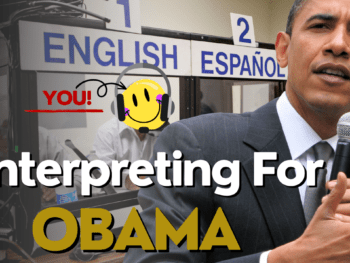Working as a freelancer seems to be a dream for many, but is it really worth it? Find out what the reality of being self-employed actually is.
We all know the typical ‘selling points’ of going freelance. Phrases like ‘be your own boss‘, ‘choose your own working schedule‘ or even the very poetic ‘be in control of your own destiny‘ have been repeated to exhaustion whenever the topic is related to working as a freelancer.
As a freelance worker myself, I can confirm that statements such as these do tend to hold true… sometimes! You see, there’s always a catch when it comes to being ‘your own boss’.
Being a freelancer is wonderful when things go right, but the truth is, sometimes they don’t. Some people are so keen to talk about the bright side of self-employment they forget how difficult a downturn can be.
So if you’re thinking about working as a freelancer, make sure to read this post until the end: I’ll be showing you the ugly side some people are not willing to talk about.
My goal is not to discourage you, but to add some perspective to the topic. That way, you’ll be able to make an informed decision on whether you should quit your job to start freelancing.
Note: I’m a translator-interpreter, but what I’m about to say is largely applicable to any type of freelance worker.
How To Start Working As A Freelancer
Let’s start by taking one thing out of the way: if what you’re looking for is a step by step guide on the technicalities of becoming a freelancer (for legal and tax purposes, that is), then I’ve got your back! Here’s a detailed post on the subject:
Continue Reading: How to Become Self-Employed
The above post covers the process of going freelance in the UK (sadly it won’t help much if you’re in the US or in any other country, sorry! But the rest of this post will be relevant to you regardless of where you live.)

Understanding this process at an early stage is extremely important to ensure you’re doing things right, as the last thing you want is to get in trouble with the taxman (a friend of mine once told me the bogeyman is way less scary than the taxman, so do not upset him!)
Now that we got this out of the way, let’s get to the main topic: what’s actually like to be a freelancer.
What It’s Really Like To Be A Freelancer
Instead of just compiling a dry and unexciting list with all the ugly facts about making a living as a freelancer, I thought the actual reality is best described if I simply tell you how my last 2 weeks went.
Note: I’m writing the original version of this post in the second week of March.
Ups and Downs
Here’s how it went: I was having a fairly decent February, not extremely busy, but still nice and steady nonetheless. Then came the last week of the month, and things suddenly went crazy.
It’s as if all my regular clients suddenly realised they desperately needed me… all at the same time!
I kept on receiving translation projects one after the other, including a number of remote interpreting assignment requests.
To give you an idea, I got overloaded to the point of having no other option but to turn some projects down. I was mad busy with work.
Needless to say, it was a very profitable week – one of the best I’ve had in a long time. Weeks like this are a serious boost to a freelancer’s confidence, mood, and of course, finances.
So we entered the first week of March with me looking forward to keeping the flow going. That’s how it is, freelancing truly is an exciting thing when things are going well: you can’t get enough of it.
However, none of my clients contacted me on Monday. ‘That’s alright‘, I thought. ‘Last week was fairly busy, so I can afford a day of inactivity.’
Tuesday… nothing. Wednesday… nothing. I was getting increasingly worried. How come nobody had contacted me for work in 3 days?
Suddenly, the financially rewarding week I’d had before was starting to look less and less remarkable, as the 2 weeks put together were now averaging out a more modest number in terms of income.

Typically, this is when paranoia kicks in. Just like it goes up when you’ve got a lot of work, your levels of confidence may suffer when you’re not bringing in any money.
‘What if my client aren’t contacting me any more because I did something wrong? What if this level of inactivity is now permanent and last week was nothing but a fluke?’
That’s the type of questions freelancers might start asking themselves in these circumstances. At least I certainly do.
As nothing seemed to be happening, I took the opportunity to try and reach out to new potential clients – but of course, I know for a fact that’s unlikely to result in any immediate project requests.
Trying to calm yourself down under this scenario is also far from easy. Remember: you don’t have a contract nor a guaranteed salary at the end of the month. You’re all by yourself.
Thursday… finally, a new project request! A fairly small one though, not much money to be made there. Friday… another couple of tiny projects came to my work desk.
And that was it. Just like that, the week was over! 😐
I made less than £70 in 5 days – one of the worst starts of the month I’ve had in a long time. That covers just about 5% of my monthly expenses, so I could be in trouble next month. Imagine if I didn’t have any savings…
Mental and Financial Stress
This, my dear friends, is freelancing in a nutshell.
One moment you’re struggling to process all the work requests that you’re getting from your clients, the next you’re struggling because there’s no work coming in whatsoever.
I literally went from one of my best weeks in the entire tax year to the very worst one. And unless things change drastically in the upcoming weeks, I may end up having one of the worst months of my entire career.
As a freelancer, your income is uncertain and fluctuates from month to month. Your expenses don’t.
That’s why freelancing can be extremely stressful both mentally and financially. And being prepared for this reality before you decide to go freelance is absolutely paramount to avoid regretting your decision.

In my case, having saved a full year worth of living expenses while still employed was an essential prerequisite to becoming a full time freelancer.
You too, make sure you have enough money put aside before you go freelance. It need not be a full year worth of expenses, as long as it is an amount you feel comfortable enough with.
Always have a clear number in your mind: ‘if things go wrong, I’ve got enough cash to survive for X months.‘
What’s more, if the lack of a guaranteed income wasn’t enough, there’s a number of things that employees take for granted that freelancers don’t necessarily enjoy. Below are some examples.
Self-Employed Holidays and Vacations
Did you say ‘holidays and vacations’? Forget them! At least don’t count on having the same kind of holidays/vacations you used to when you were an employee. 🙂

Typically, when you have a standard job, this is hardly an issue: you’re still getting paid while you’re away. As a freelancer, however, any time off work means no pay.
Freelancers have more flexibility when it comes to deciding when (and for how long) to take time off work, but sometimes they just can’t afford that luxury. And even if they do, replying to work-related emails can be too tempting to resist.
Retirement Pension
In the UK, freelancers pay National Insurance contributions like everyone else, so they are entitled to State Pension when they reach retirement age (provided they meet the minimum requirements.)
Getting the basic State Pension – assuming it will still exist when we all retire – is all well and good, but it may not be enough to survive. That’s why it’s mandatory for UK employees to enrol their employees in a private pension scheme and top up their monthly contributions.

Freelancers don’t benefit from any of this, so they have to be very careful when organising and managing their finances – not just on a monthly basis, but long term too.
If you decide to go freelance, you need to draw a retirement plan as early as you can. This can involve savings, investments, a self-employed pension scheme or a combination of the 3.
Self-Employed Taxes
It’s almost impossible to go wrong with taxes when you’re an employee, since pretty much everything is done for you.
That doesn’t apply to freelancers. We have to do everything ourselves, and yes, things can go horribly wrong if you don’t know what you’re doing.
Many freelancers hire an accountant to handle their taxes. That’s a wise move if you can afford one.

You must register as self-employed once you exceed your yearly tax-free trading allowance. Then you need to keep record of all your income and business expenses so that you may file your tax self-assessment every year.
The official articles below should give you some idea of how this works, but do consider getting in touch with a professional for advice:
Sick Pay
UK employees may be entitled to claim Statutory Sick Pay (SSP) when they can’t work due to illness (as long as they meet certain requirements.)
In addition, the company itself may have an internal policy that covers an X amount of days of illness per year, so the employee can take time off to recover without having his or her income slashed.
Freelancers are not entitled to any of that, so periods of illness tend to be more devastating to a person’s livelihood.
You may be able to claim Employment and Support Allowance (ESA), but your level of protection is always lower when compared to that of an employee.
Working Weekends and Evenings
You may have to work weekends and evenings in order to meet certain deadlines.
While the same can sometimes be said of a regular job (I did have to work certain Saturdays and occasionally stay until late back in those days), as a freelancer you don’t get paid any extra for that.
This also depends on your exact professional activity, the stage you’re at in your career, and how financially rewarding your freelance business generally is.
It’s extremely hard to turn down work when you need the money, so you may find it preferable to take in as much as possible, even if that means long work days and no ‘weekend fun’.
Do All Freelancers Struggle?
At some point, yes, definitely.
Pretty much all freelancers have to face the same challenges: no guaranteed income, no paid holidays, no sick pay, etc.
Many freelancers end up going back to a 9 to 5 job as they realise they cannot take the instability any more. The Business Insider covered this topic in an insightful 2020 article.
I myself sometimes think about going back to a regular job – especially in times like this, when most of my clients go silent for a period of time.
As much as I love what I do, the thought of going back to my old life for the sake of financial security always comes back to me during hard times.

Nevertheless, we cannot forget that all freelance jobs aren’t equal, with some types of professionals being in high demand and others not so much.
For instance, it’s unlikely a freelance software developer will be out of work as often as I do. There’s a much higher demand for software developers than for translators and interpreters, so the amount of work available out there is probably more abundant.
So while all freelancers have to face the exact same challenges, your specific profession and the respective market demand will help determining how hard overcoming those challenges is going to be.
In general, freelancers tend to earn more than average workers. This is definitely true in my case, but of course, that applies only when I’ve got regular work coming in.
So, to most people, the trickiest part about being self-employed is maintaining a steady workflow throughout the year.
How To Go Freelance (Successfully)
By now you might be thinking: okay, I get it, freelancing isn’t a bed of roses, but I still want to give it a try. How do I go about? And most importantly, is there a way to minimise the risks?
In my personal opinion, the wisest strategy to make a successful transition from employee to freelancer is to take all the time that you need before committing to it full time.
In other words, it may be wise to keep your standard job while you slowly grow your side business. You can make use of your evenings and weekends for a period of time and take the opportunity to gain experience, perfect your skills and slowly grow your portfolio.
Once the income that you generate from your side business is enough to cover at least your basic monthly expenses, then it’s time to become more serious about it.

If you can, try to gradually cut down your work hours at your job. Not every employer will allow that, but some do. You may, for instance, ask your boss to reduce your schedule from 5 to 3 work days per week, so you’ll have 2 extra full days to dedicate to your freelance business.
Eventually, you may find yourself in a safe position to complete the transition and become a full time freelancer.
Jumping head first in the freelancing world full time is always tempting, but definitely more risky too. A gradual transition is almost always the best way to ensure a successful move from employee to freelancer.
Nevertheless, please note that while this is a common strategy to reduce the level of risk, it’s not bulletproof. Your current success is not necessarily a perfect indicator of your future success. There are always things out of our control.
I have followed this route myself and only became a full time freelancer when I already had a number of regular clients; only then I felt confident enough to take my chances and quit my full time job as a translation project manager. Nevertheless, as you can see, after all this time I’m still going through tough times once in a while.
Conclusion
Now that we’ve covered the harsh truth about working as a freelancer, perhaps it’s worth asking again: is it really worth it?
The answer will always be subjective and largely depends on one’s specific circumstances.
In my personal opinion, it is worth it. To me, the benefits of being self-employed justify the financial stress that comes along with it.
But again, that’s given my current life situation. Circumstances might change, and perhaps in 2 years time, depending on how things go, I may not be of the same opinion… you never know!
I’ve dedicated this post to the dark side of freelancing simply because a healthy dose of reality is always needed. Social media – well, the internet in general – is so overloaded with quotes and stories about ‘following your dreams’, it’s easy to forget that life is far from a dream.
Things go wrong. Things get ugly. This is true regardless of what you do for a living, but it’s even more true when you’re a freelancer. It’s a riskier lifestyle, so it’s important to know how much risk is your ‘freedom’ worth.

Freelancers have the ability to decide when, how and where to work, but trust me on this one: when you’re struggling financially, you do not feel you’ve got any freedom at all. It’s quite the opposite: to the most part, you just feel worried and helpless.
As already mentioned, many people actually make more money as freelancers than they would if they were employees. For those, going freelance should be a no-brainer.
But money isn’t always the sole or main reason why people follow that route, with some being happy to take a pay cut in order to become self-employed.
So I’ll put it in a different way: how easy would it be for me to go back to a standard 9 to 5 job?
Every freelancer should be mentally prepared to go back to being an employee if self-employment doesn’t work for them – and I’m no exception.
But I must admit: it will be hard for me to go back to a strict 9 to 5 job after having enjoyed the pros of self-employment. For better or worse, life as a freelancer is always interesting, while as an employee it tends to get dull and repetitive fairly quickly.
If you’ve found this post helpful or think it could be useful to a friend who perhaps is – or is planning to become – a translator or interpreter, please kindly consider buying me a coffee by using the button below:
I put all my heart and soul into the content I produce in order to help my fellow linguists set foot in the industry. Most of what I do is available to everyone for free.
Donating is 100% optional, but greatly appreciated. A short espresso will do! ☕















 Interpreting Training Exercise | Cinema – Method Acting
Interpreting Training Exercise | Cinema – Method Acting
Thank you for the honesty in this article, I’m finishing high school and will apply for university this summer and I have no idea what to do because I sort of want to be a translator but people around me are saying its a bad idea because it’s hard to find work. This is killing me because I need to decide in a few months and I don’t want to regret my decision. I don’t want to base my decision only on money, but at the same time I don’t want to spend a fortune and years of my life studying something that will not give me any safety. But I cant see myself doing anything else, I’m a Humanities person and I feel translation is my best shot, specially because I’m fluent in Dutch, German and English and I always liked to write. I’m seeing articles that say that translators can make a decent living, but then I see others like this that show me the other side and I honestly cannot decide… what should I do? Thanks
Hi Lotte, have you considered taking a gap year after high school? You seem to be under a lot of pressure and we don’t tend to make the best decisions under such circumstances. Should that be an option at all, it may be worth just taking a gap year to sit down and think about what you really want to do (perhaps get a job, take an apprenticeship or some short courses outside of uni, etc.) No use of you forcing yourself into a degree just because people around you are doing the same. It’s okay not to know what you want, I myself only found out when I was 26 or 27. This isn’t a sprint, but a marathon.
And please note that instability comes with any freelance activity, not just in the translation industry. While this post focuses on the ugly side of freelancing, I’d also have a lot of negative things to say about standard 9 to 5 jobs. No professional activity is without problems, the key is to find what works best for us.
PS: Please don’t take this as a recommendation, I’m not a career adviser. There’s a lot of info about taking a gap year online, make sure you have a look around before making a decision.
Found your article after looking for advice on expectations of a freelancer.
After years of thinking it would be nice to do freelancing on the side of my day job, an opportunity came along to do a few hours per week.
It’s definitely a great feeling knowing I’m earning enough to cover a supermarket shop, though am still getting used to the often unclear and last minute demands from my client!
They have actually invited me to attend a team away day which I can’t do as I can’t be away from my 9 to 5. I’m not really sure if freelancers should get involved in team building activities as I had the concept that the relationship between freelancer and client was more transactional!
The ‘be your own boss’ thing always appealed, though at the moment my freelance gig does at times make me feel like they expect me to be another employee without the commitment!
Thanks for the great post, I took great comfort in reading someone being objective with the downsides of freelancing, rather than talking the usual ‘live your dreams/earn six figures/be time and location independent type stuff’!